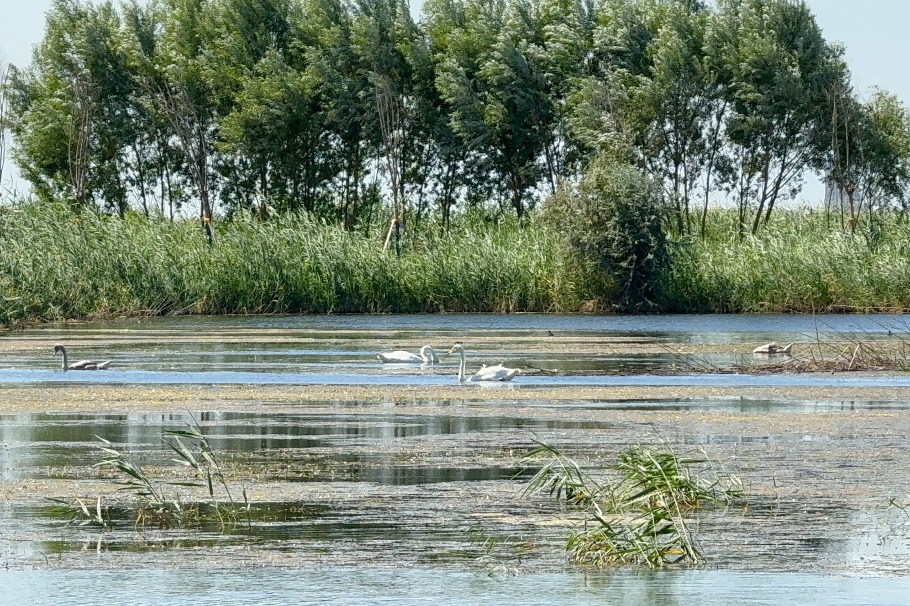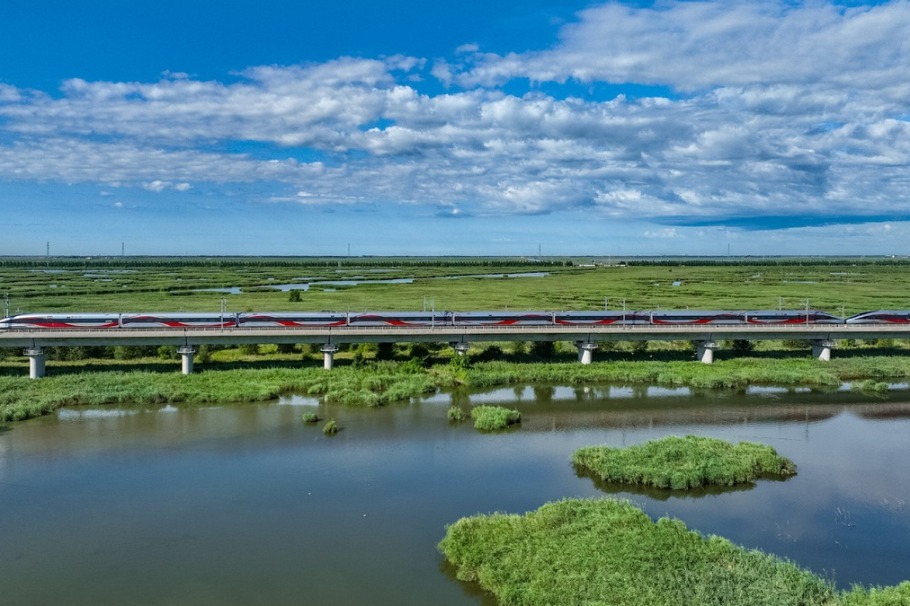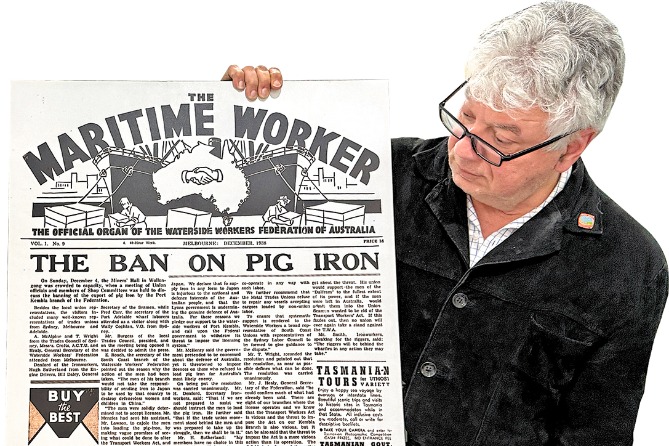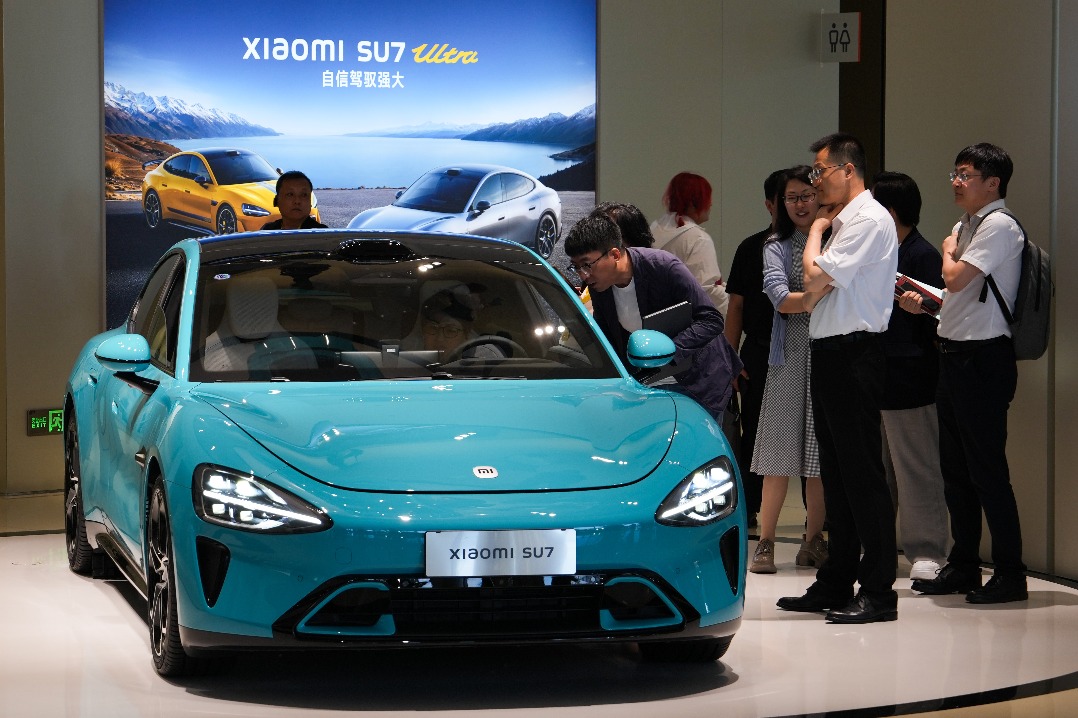Migrants become pawns in endless political game
Perilous journeys to Europe exacerbate divides, putting at risk continent's unity

From the collapse of empires in the aftermath of World War I to the fallout following the breakup of Yugoslavia, mass migration was a regular feature of life in 20th century Europe.
In the 21st century, migration remains widespread, but now it is mainly events and people from outside Europe that drive it.
From nearly 100 people dying after a boat sank off the southern coast of Italy in February to the electoral success of the far-right in the Netherlands in November, this year the human cost and political impact of immigration have been inescapable, and there is little sign of that relenting in 2024.
The current migration challenge is from without, not within. Years of instability in countries such as Afghanistan, Syria and Libya have caused tens of thousands of people to leave, now joined by others from sub-Saharan Africa.
An extensive trafficking network results in many of them being willing to risk their lives to cross the Mediterranean Sea to Europe, as part of a huge ecosystem of human suffering whose complexity is airbrushed out by simplistic headlines.
In her award-winning book My Fourth Time, We Drowned: Seeking Refuge on the World's Deadliest Migration Route, journalist Sally Hayden immersed herself in the migrants' world.
Organized crime, trafficking, abuse and institutional corruption all contribute to a grim picture of which small boats full of individuals are just a minor detail, but Hayden also highlights the significance of the mobile phone as an instigator and a chronicler of the migration crisis.
"Smartphones had … enabled Africans to see what life is like in Western countries," she wrote. With online access, "it is easy to compare lives".
Although much of Europe is increasingly in union on many political matters, when it comes to migration, national attitudes vary wildly.
"Over the last 15 years, there have been arrivals across the Mediterranean at quite a steady level — the peak was in 2015-16, after the trouble started in Syria, when it was around 1.2 million people, but since then it's gone back down," said Andrew Geddes, director of the Migration Policy Centre at the Robert Schuman Centre in Florence, Italy.
With its position of geographical prominence, projecting toward North Africa, Italy is one of the top destinations for people trying to enter Europe via the Mediterranean.
By November, about 150,000 sea migrants had arrived in Italy alone so far this year, a figure about 50 percent higher than in the corresponding period a year earlier, Reuters reported.
"It's fueled by conflict and inequality," Geddes said. "This year, there were predictions of 200,000 people — that hasn't happened, but the numbers are still up on last year."
Feeling the strain
Residents of the southern Italian island of Lampedusa were nominated for the Nobel Peace Prize in 2016 for their enlightened attitude toward migrants. However, after almost 10,000 arrived in one week in September this year, even the most charitable of people began to feel the strain.
Italy has called upon its European partners to share the burden of dealing with so many new arrivals, which has put the unity of Europe at risk.
"Countries like Italy or Greece, another major arrival point, want an allocation of responsibilities, but some other countries don't agree," Geddes said. "The events of 2015-16 exposed differences between nations on how they should share responsibilities — there's more agreement now on the need for cooperation, but it is still a sticking point."
In France, President Emmanuel Macron's flagship immigration policy has limped through Parliament after criticism and initial rejection from all sides, and this year has also seen a significant change of heart in Germany, for so long the desired destination of many migrants.
Statistics from the European Union Agency for Asylum showed that more than 60 percent of asylum applications submitted in the European Union by Syrians in the first half of this year were made in Germany, and for many years, the country has been welcoming.
In 2015, then-chancellor Angela Merkel said "We can do this" as she announced an open-door immigration policy, adding, "If we start having to apologize for showing a friendly face in an emergency situation, then this is not my country."
But in 2023, with years of steady migration having been added to by an estimated 1 million Russia-Ukraine conflict refugees, Chancellor Olaf Scholz has become notably less welcoming.
In an October interview with news magazine Der Spiegel, he said "too many are coming" and "we must finally deport on a large scale those who have no right to stay in Germany … we must deport more and faster".
The far-right, anti-immigration Alternative for Germany party, previously mainly popular in the east of the country, has grown in support nationwide, prompting co-leader Alice Weidel to say it "has become a major all-German party".
"So we have arrived," Weidel said.
Geddes from Florence said, "Over the last year or so, a significant change across the EU is that very prominent right-wing parties have been setting the agenda on migration.
'Deeply problematic'
"It isn't necessarily new but what we're seeing is an intensification of feeling toward looking for external solutions. It's deeply problematic from a legal point of view, but countries like Austria, Denmark and Germany are looking at the deal Italy has struck with Albania and thinking, 'Is there a way we can create something?'"
The external solution Italy's right-wing Prime Minister Giorgia Meloni has found in Albania would see her country fund holding centers there for up to 36,000 people a year, just two years after Albania's Prime Minister Edi Rama said his country "will never be that place where very rich countries establish camps to dump migrants".
Geddes said the only logical explanation for Rama's change of heart is one that reinforces the dehumanized feeling of migrants being treated as bargaining chips.
"The only way you can understand that is in the context of Albania pursuing EU membership, which is not an unrealistic prospect," he said. "This deal helps ensure support from Italy."
When he announced the deal to Parliament, Italy's Foreign Minister Antonio Tajani was at pains to point out that it was not like the United Kingdom's proposed deal with Rwanda, which has cost UK taxpayers more than 290 million pounds ($370 million), would only cater for a tiny number of cases, and has so far produced no results whatsoever.
However, within weeks of its announcement, Albania's constitutional court temporarily blocked the deal, to check if it violates the country's Constitution, and Meloni has since admitted the issue is "the most complex phenomenon I've ever had to deal with".
The problem British Prime Minister Rishi Sunak has encountered is, ironically, one that did not exist before Britain's exit from the EU, a campaign fought under the slogan of taking back control.
It is tearing his government apart and has forged a dangerously sharp-edged political weapon, which could prove decisive in the British general election due in the next 12 months. This is the small boats crisis.
According to figures published by the Home Office in November, 27,284 people have been detected so far this year crossing the English Channel, which is about one-third less than the figure from the corresponding date in last year.
This statistic barely existed before Brexit, however, as people attempting illegal entry could be sent back to the EU. With no replacement provision for this arrangement in the Brexit Withdrawal Agreement, the UK now has nowhere to put these new arrivals, and they know it — so they come.
At the start of this year, Sunak pledged to "pass new laws to stop small boats, making sure that if you come to this country illegally, you are detained and swiftly removed…those are the people's priorities".
"They are your government's priorities. And we will either have achieved them or not," he added.
Sunak is having another go at passing the Rwanda policy which has so far consistently been rejected by the courts and, at huge cost, achieved nothing. It has, however, saddled him with a big problem, created by a hard-line devotion to Brexit.
"The ability to return asylum-seekers was linked to being in the EU, through something called the Dublin Regulation, but that has fallen off a cliff as the UK is no longer part of that system," Geddes said. "The only way you can resolve this is to find some kind of accommodation with the EU." But that would be heresy to Brexit believers.
Lurch to right
In Europe, next year's political fallout of the great migration question could be a lurch to the right.
"June's European Parliament elections will be key," Geddes said. "They could play a big part of defining the next five years.
"Currently, right-wing parties are in a strong position, so you're looking at a shift in the balance of power in EU institutions, and in key member states, which could set the direction of travel on issues such as border control, security and external solutions."
All the while, the boats still come, across the Mediterranean and the English Channel. On board are people with cellphones, which encourage them to pursue their dreams of what they think is a better life, and record the nightmarish reality of their journeys.
Those people may never reach the capital cities of Europe, but the journeys they make and will continue to make are shaping decisions made in those cities, which could have ramifications shaping the lives of millions of people, settled and displaced, for years to come.
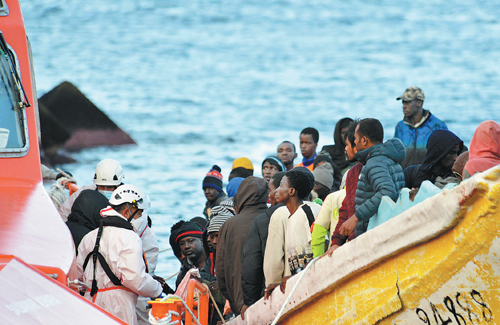
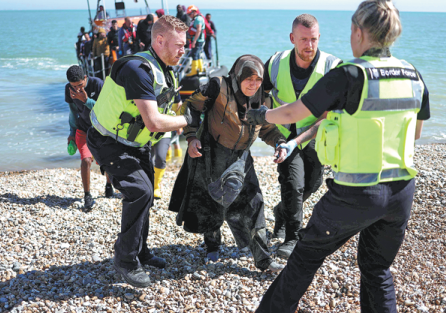
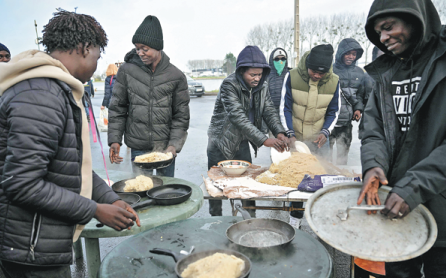

Today's Top News
- China supports Ukraine peace talks between all parties
- China to hold press conference on military parade preparations
- Vast gap has to be bridged for peace to arrive in Europe
- AI powering China's industrial evolution
- Tech innovation propels nation's industrial future
- Chengdu World Games concludes amid wide acclaim
















